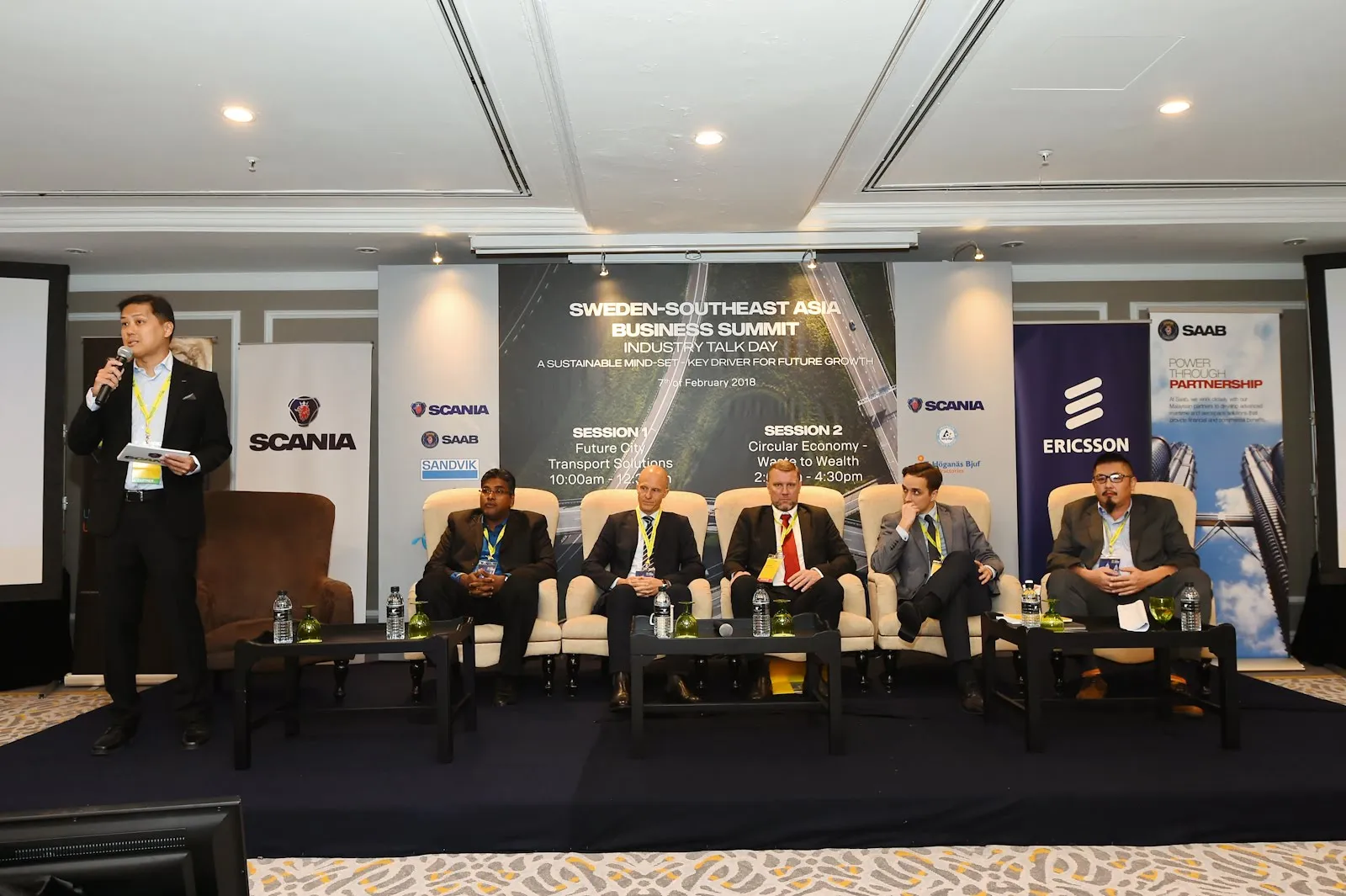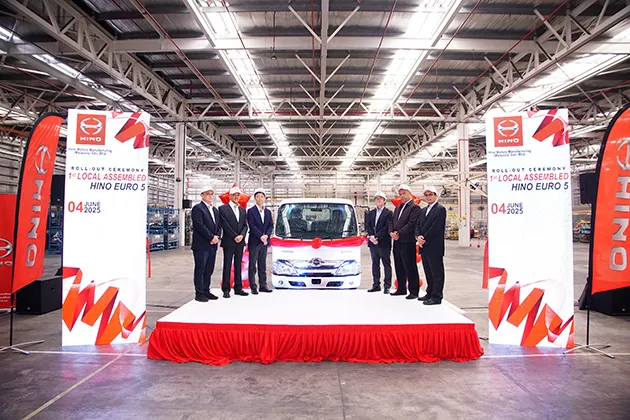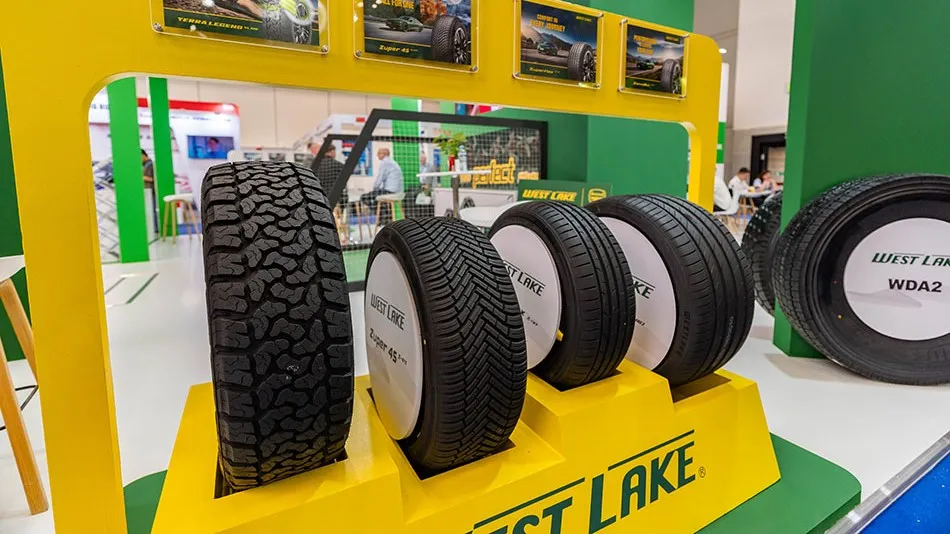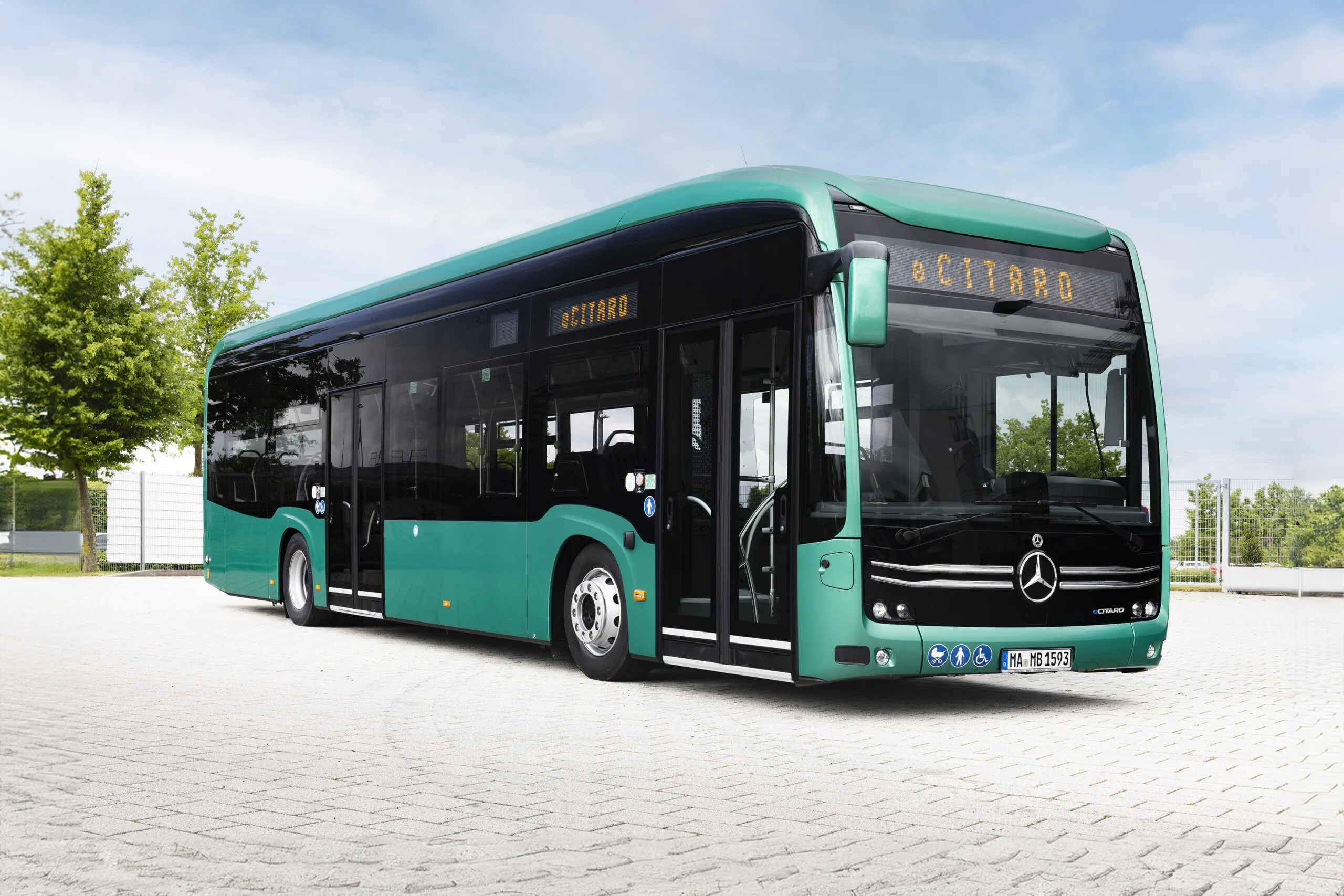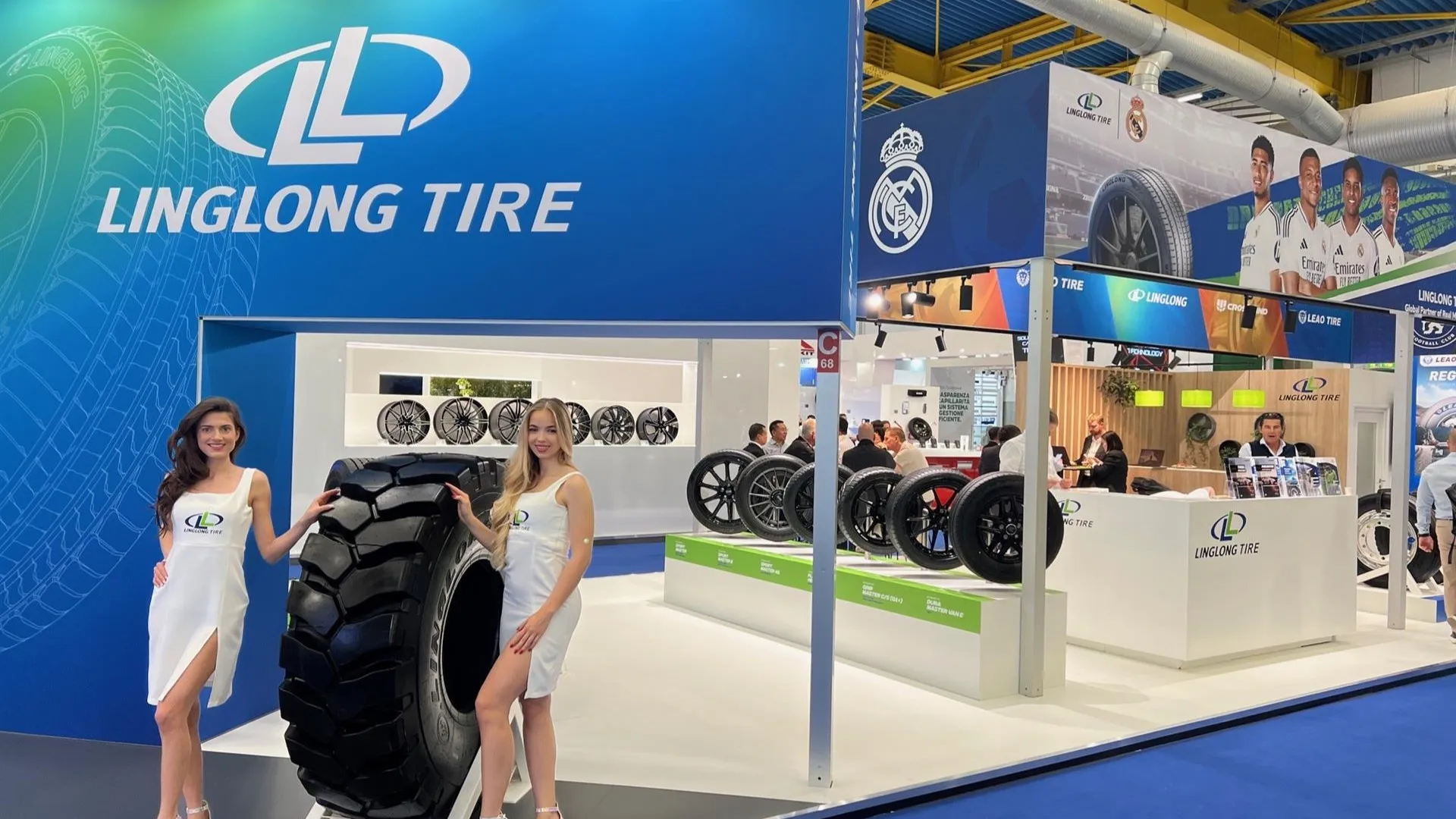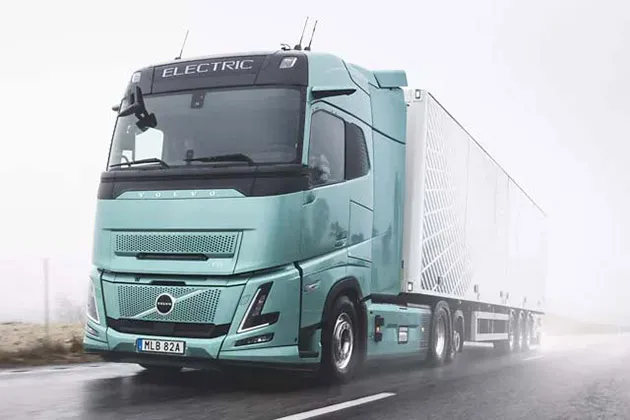With demand for goods transport on the rise, the transport industry’s challenge is to manage growth while reducing emissions.
Scania Emerges as Pioneer in Biofuel-Powered Transport Solutions
Scania recently shared how the global commercial vehicle maker is leading the shift towards sustainable transportation at the recent Sweden-Southeast Asia Business Summit (SSEABS) held in Kuala Lumpur.
Scania was one of the main sponsors of SSEABS that had sustainability as a theme.
Among the objectives was to further explore cooperation opportunities among Sweden, Malaysia and Southeast Asia in the areas of waste to energy, waste to fuel and recycling.
Industry experts shared their views and perspectives on how Swedish models, innovations and technologies, which resulted in 99 per cent of all waste in Sweden being reused one way or the other, could be adapted in the local and regional context.
Sweden is one of the leading countries in renewable energy. It met its target of 49 per cent renewable energy by 2020 already in 2012, eight years ahead of schedule. In 2015 renewables provided 52 per cent of Sweden’s energy. To achieve this, Sweden launched an extensive support programme on green energy, high taxation on carbon emissions as well as tax breaks for low emissions cars to encourage local and regional climate investment.
In a discussion on ‘Circular Economy – Waste to Wealth’, the guest speaker was David Lantz, the sustainability manager of Scania Southeast Asia. Lantz discussed how waste could create job opportunities to enhance economic growth while lowering emissions to improve public health.
“We have to see waste as a resource and something that could add value in our society,” he said.
Lantz pointed out that Scania ethanol buses had been in operation in Swedish cities since 1989.
“It’s been almost 30 years now. Scania has a lot of experience with this mature technology; such soot-free city buses are very reliable.”
Lantz also said the benefits of using bio-fuels included job creation; it created 100 times more jobs per energy unit produced compared with the traditional fossil fuel industry. The business case for a circular economy was compelling. Studies showed that the global economy could benefit immensely from a more circular approach, embodied in material savings, emission reductions and job creation.
“Look at using bio-gas from rotting organic waste; bio-gas is an excellent fuel that could be used for public transport or even waste collection – thus, creating a circular economy. Bio-gas (or methane gas) is released from rotting organics like food in a landfill. By converting that methane gas and using it in the public transport system, we are lowering harmful emissions in both the public transport system and waste sector,” he said.
Lantz noted that the costs of using bio-gas could be easily lowered. “In Europe, you treat the organic waste and produce the bio-gas in the city, and reduce transportation costs. Take Stockholm (capital of Sweden), for instance; the biogas plant is next to the depot and you just pipe it in.”
Sweden has vast know-how and expertise on waste to wealth. It achieved a rate of 99-per cent reuse of waste produced by households, municipalities and industries, of which half is recycled and the other half used for waste to energy purposes. In other words, Sweden has gone through a recycling revolution considering that only 38 per cent of household waste was recycled in 1975.
The latest studies clearly demonstrate how climate change mitigation targets and policies could combine with high levels of economic growth. Strong climate policies contributing to economic growth and job creation facilitated Sweden’s transformation to a low carbon society.
Hosted by Dag Juhlin-Dannfelt, the ambassador of Sweden in Malaysia, SSEABS was organised by the Embassy of Sweden in cooperation with Business Sweden. Also present were Minister of International Trade and Industry Datuk Seri Mustapa Mohamed and Sweden’s Minister for Enterprise and Innovation Mikael Damberg.
斯堪尼亚:生物燃料运输解决方案领袖
随着客户对良好运输要求的提升,运输行业的挑战是在降低废气排放之际,管理增长。
近日,斯堪尼亚在吉隆坡的瑞典-东南亚商业峰会(SSEABS)中分享全球商业车辆制造商,如何引领业者朝向可持续性运输。
斯堪尼亚是该峰会中以可持续性为主题的主要赞助商。其中的一个目标是进一步发掘瑞典、马来西亚及东南亚在将废物化为能源、废物化为燃油及再循环方面的合作机会。行业专家在该峰会中分享瑞典车型、创新及技术如何将瑞典99%的废物重新使用,以及如何将这些加以调整,以便应用在本地和此区域内的意见和观点。
瑞典是再生能源领先国。它在2012年已经实现它2020年达到49%再生能源比率的目标,比计划中早了8年。2015年,再生能源占了瑞典能源的52%。为了达到这一点,瑞典推介了支持绿色能源、高碳排放税及低废气排放汽车可减少缴税的广泛计划,鼓励当地和区域性的气候投资。
斯堪尼亚东南亚可持续性经理蓝特兹(David Lantz)是“循环经济 –废物至废物”讨论会中的嘉宾。他谈到废物如何在制造就业机会和加强经济成长的同时,降低废气排放,改善公众健康。
“我们应该将废物看成是一种资源,一种能为我们的社会添加价值的东西。”他说。
他指出,斯堪尼亚乙醇巴士自1989年以来就在瑞典运行。
“它如今已经运行了将近30年。这是项成熟的技术,如可靠的无烟公共巴士,斯堪尼亚在这方面有着丰富的经验。”
据蓝特兹表示,采用生物燃料的好处很多,包括创造就业机会,它创造了比传统化石燃料的每一个能源单位100 倍以上的工作机会。循环经济的商业案例令人瞩目。研究显示全球经济会因一个循环的方法而获益良多,而这些好处将体现在节省材料、废气排放及创造就业机会上。
“且让我们看看我们如何使用从腐烂有机物体所产生的生物气体。生物气体是能够用于公共运输的一种卓越燃料,甚至是废物收集,创造出一个循环经济。生物气体(或沼气)是腐烂的有机物体释放出来的气体如填土里的食物。将它转变成沼气,并将它使用在公共交通系统,我们就能减少公共交通系统和废物部门的有害排放。”他说。
蓝特兹察觉到采用生物气体的成本比较低。“在欧洲,你处理有机废物,然后在城市里制造生物气体,降低运输成本。以斯特哥尔摩(瑞典首都)为例,生物气体的工厂就在港口旁,而你就用管子把把它接过来使用而已。”
瑞典对将废物变成财富有着丰富的专门知识。它的家庭、直辖区及工业废物的使用率达到了99%,其中有一半是再循环,另一半是将废物转换成能源。换言之,瑞典已经经过了再循环革命,1975年时,只有38%的家庭废物回收再循环。
最新的研究明确显示,气候的转变如何缓解目标和政策,并与高水平的经济成长相结合。强大的气候政策,将助力经济增长和创造就业机会,使瑞典转变成为一个低碳社会。
此峰会由瑞典大使馆和瑞典商业联办,瑞典驻马大使达克(Dag Juhlin-Dannfelt)主持。出席者包括国际贸易与工业部长拿督斯里慕斯达法(Datuk Seri Mustapa Muhamed )和瑞典企业及创新部长丹贝格(Mikael Damberg)。

